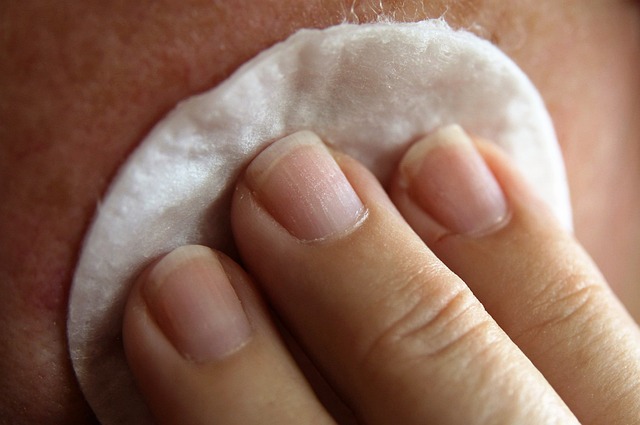Manchester Tag Removal encompasses various treatments for benign skin growths known as Manchester Tags, which are characterized by small bumps or yellowish spots typically found on the face. These tags can be effectively managed through a combination of medical removal methods such as surgical excision, electrosurgical procedures, and laser treatments, tailored to the individual characteristics of each growth. A thorough clinical examination by a dermatologist is key to differentiating Manchester Tags from other skin lesions. Manchester offers comprehensive dermatological services with both public and private healthcare facilities under the NHS, providing professional care and advanced treatment options. For those seeking immediate or more private care, private clinics in Manchester specialize in same-day consultations and treatments using state-of-the-art technology and are staffed by dedicated medical experts committed to patient satisfaction and safety. Lifestyle factors play a significant role in skin health and the prevention of Manchester Tags; maintaining a diet rich in vitamins, particularly antioxidants, zinc, and vitamin C, along with regular exercise and stress management practices, can support overall skin wellness. Post-removal care is critical for optimal healing, minimizing scarring, and ensuring the best recovery outcomes, with guidelines emphasizing cleanliness, moisturization, avoiding picking, and protecting against sun exposure.
Manchester tag removal is a common concern for many seeking to maintain clear, healthy skin. This article delves into comprehensive strategies for managing unwanted skin growths, known as Manchester tags. We’ll explore their nature, assess potential risks, and provide insights into both medical and natural remedies for their removal. Additionally, learn about lifestyle adjustments that can prevent new tags from forming and discover post-removal care tips to ensure optimal healing and minimize scarring. Whether you’re exploring professional treatments or natural alternatives, this guide equips you with the knowledge to handle Manchester tags confidently.
- Understanding Manchester Tags: Identifying and Assessing Skin Growths
- Professional Medical Approaches for Tag Removal in Manchester
- Natural Remedies for Managing and Reducing Skin Tags Safely
- Lifestyle Changes to Prevent Future Manchester Tags Formation
- Post-Removal Care: Ensuring Optimal Healing and Minimizing Scarring After Tag Removal in Manchester
Understanding Manchester Tags: Identifying and Assessing Skin Growths

When confronted with unwanted skin growths, a comprehensive understanding of their nature and proper identification is paramount for effective management. Manchester Tags, also known as sebaceous hyperplasias or syringomas, are common benign skin growths that can appear on the face, particularly around the eyes and cheeks. These tags can vary in size and may resemble small, raised bumps or yellowish spots. Recognizing the characteristics of Manchester Tags is the first step in assessing whether they require removal. Dermatologists often use a combination of clinical examination and patient history to differentiate between benign growths like Manchester Tags and more serious lesions that may necessitate medical intervention.
For those seeking Manchester Tag removal, it’s important to consult with a qualified healthcare professional. The removal process can be approached through various methods, including surgical excision, electrosurgical procedures, or laser treatments, depending on the size, location, and number of tags. Each method has its own set of advantages and considerations, such as recovery time and potential side effects. The decision on which removal technique to employ should be made after a thorough evaluation by a dermatologist, taking into account individual patient factors and the specific nature of the skin growths. Manchester Tag removal is a tailored process, aimed at restoring the aesthetic appearance and ensuring the health of the affected skin areas.
Professional Medical Approaches for Tag Removal in Manchester

When addressing unwanted skin growths such as tags, professional medical approaches are indispensable for safe and effective removal. In Manchester, a variety of specialized dermatological services offer treatment options tailored to individual needs. Dermatologists in this vibrant city are well-versed in the latest techniques for tag removal, ensuring that each procedure is carried out with precision and care. The National Health Service (NHS) provides access to these services, with both public and private hospitals offering appointments. For those seeking immediate attention or preferring a more exclusive setting, private clinics in Manchester specialize in tag removal, often providing same-day consultations and treatment. These facilities are equipped with cutting-edge technology and staffed by experienced medical professionals who prioritize patient comfort and safety. The city’s commitment to healthcare excellence means that residents have access to a range of treatments, from surgical excision for larger tags to cryotherapy or electrosurgery for smaller growths. Manchester tag removal services are designed to address various skin concerns, ensuring that both aesthetic and health goals are met with the highest standards of care.
Natural Remedies for Managing and Reducing Skin Tags Safely

For those in Manchester or beyond who are contending with skin tags, a range of natural remedies can be considered to manage and reduce these benign growths safely. Tea tree oil, renowned for its antiseptic properties, is one such natural option. When applied topically, it can help in drying out the skin tag, potentially leading to its gradual disappearance. Castor oil, another natural contender, may assist by promoting healthy skin cell growth and inducing the body’s natural healing processes. It should be noted that these remedies are most effective when used consistently over time, and patience is key.
In addition to topical treatments, dietary changes can also play a role in the management of skin tags. Including foods high in zinc, such as pumpkin seeds, beans, and nuts, can support the immune system and overall skin health. Vitamin C-rich fruits like oranges and berries may also contribute to collagen production, which could help in maintaining the integrity of the skin. It’s always advisable to complement natural remedies with a balanced diet to ensure the body receives all necessary nutrients for optimal health. For those seeking professional assistance, Manchester Tag Removal clinics offer safe and effective treatment options, combining medical expertise with the latest technologies for permanent removal. These professionals can guide individuals through the most suitable methods tailored to their specific needs.
Lifestyle Changes to Prevent Future Manchester Tags Formation

Maintaining a healthy lifestyle is pivotal in preventing the formation of Manchester Tags, which are benign skin growths. A balanced diet rich in vitamins and minerals supports overall skin health and can aid in the prevention of these tags. Consuming foods high in antioxidants, such as fruits and vegetables, can protect against oxidative stress that may contribute to skin growths. Similarly, ensuring adequate intake of essential nutrients like zinc and vitamin C is beneficial for collagen production and skin integrity.
Regular exercise also plays a significant role in keeping your body and skin healthy. Engaging in activities like walking, jogging, or swimming not only promotes cardiovascular health but also improves circulation, which can help in the transportation of nutrients to the skin. Maintaining a healthy weight through diet and exercise can reduce the risk of insulin resistance, a condition that has been associated with an increased prevalence of Manchester Tags. Additionally, managing stress through mindfulness practices or yoga can positively influence hormonal balance, which is another factor that can affect skin growths. For those already dealing with Manchester Tags, a dermatologist’s guidance on lifestyle modifications and professional Manchester Tag removal options is advisable.
Post-Removal Care: Ensuring Optimal Healing and Minimizing Scarring After Tag Removal in Manchester

Following the removal of tags, commonly known as skin tags, in Manchester, post-removal care is paramount to ensure optimal healing and minimize scarring. The initial hours post-procedure are critical, as maintaining cleanliness is essential to prevent infection. Patients should gently wash the area with a mild soap and warm water, patting dry without rubbing. Avoiding tight clothing over the treated site allows for better air circulation and reduces the risk of irritation.
For effective healing and scar minimization, applying a thin layer of petroleum jelly or a prescribed silicone gel can help keep the area moisturized. This, combined with regular gentle cleansing, can promote healthy skin regeneration. It is advisable to avoid picking at any scabbing or peeling that may occur, as this can lead to scarring. Sun protection is also crucial, as the treated area will be more sensitive to UV rays during the healing process, potentially affecting pigmentation and causing dark patches. adhering to these post-removal care instructions can significantly enhance the aesthetic outcome of tag removal in Manchester and contribute to a smoother recovery experience.
When addressing unwanted skin growths, understanding the nature of Manchester Tags is paramount. The article has outlined comprehensive strategies ranging from professional medical approaches to natural remedies for their removal and prevention. In Manchester Tag Removal, it’s crucial to approach treatment with care, whether through dermatological procedures or homeopathic methods. Lifestyle adjustments can also play a significant role in mitigating the likelihood of future occurrences. Post-removal care is equally important for optimal healing and minimizing scarring. By integrating these practices, individuals can effectively manage and remove Manchester Tags, enhancing their skin’s appearance and overall well-being.
